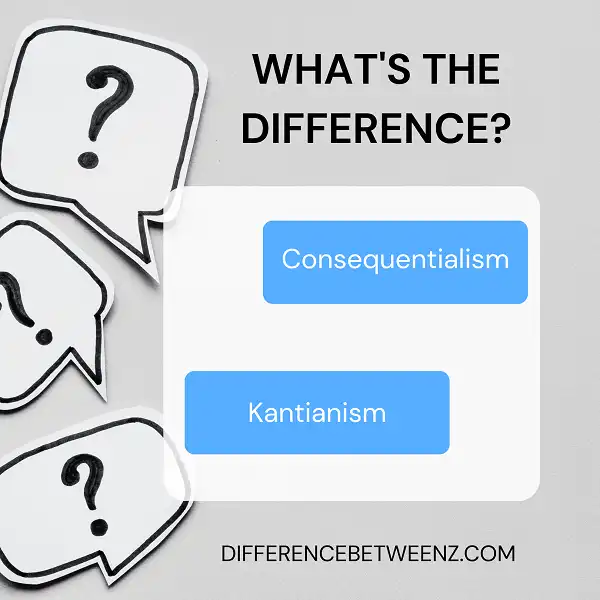Many ethical theories focus on the consequences of an action, but what happens when there are conflicting consequences? In this blog post, we will explore the differences between consequentialism and Kantianism. We will look at the strengths and weaknesses of each ethical theory and see which one is best suited for resolving difficult moral dilemmas.
What is Consequentialism?
Consequentialism is a theory of ethics that holds that the right course of action is the one that will produce the best outcomes. Consequentialists believe that the morality of an action should be judged based on its consequences, rather than on the intentions of the person who carries it out.
This can be contrasted with deontological theories of ethics, which judge the rightness of an action based on its conformity to a set of rules or principles, regardless of its consequences.
Consequentialism is often associated with utilitarianism, a school of thought that holds that the best course of action is the one that maximizes happiness or well-being. Unlike some forms of consequentialism, however, utilitarianism does not maintain that all Consequences are equally important. Rather, it holds that the right course of action is the one that will produce the greatest balance of good over bad Consequences.
What is Kantianism?
Kantianism is a philosophical theory developed by German philosopher Immanuel Kant. Kantianism emphasizes the importance of human reason and argues that people should use reason to make moral decisions.
Kantianism also holds that people should act in ways that treat others with respect and dignity. Kantianism has influenced many ethical theories and has been used to justify a variety of moral beliefs and practices.
Kantianism is based on Kant’s idea that there is a universal law of morality that applies to all people. Kant believed that this law could be discovered through reason, and he argued that it was the most important guiding principle for making moral decisions. Kantianism has had a significant impact on Western philosophy, and it continues to exert influence in the field of ethics.
Differences between Consequentialism and Kantianism
Consequentialism and Kantianism are two ethical theories that have been debated by philosophers for centuries.
- Consequentialists believe that the morality of an action should be judged based on its consequences, while Kantians believe that the morality of an action should be based on whether it adheres to a moral principle. There are a number of key differences between these two theories.
- Consequentialists tend to focus on the outcomes of an action, while Kantians focus on the intentions behind the action. Consequentialists also believe that there is no such thing as an intrinsically good or bad action; instead, all actions are morally neutral and can only be judged by their results.
- In contrast, Kantians believe that some actions (such as lying) are intrinsically wrong and can never be justified, regardless of the consequences. Finally, Consequentialists typically believe that the ends always justify the means, while Kantians believe that there are some means (such as deception) that can never be justified, even if they lead to good ends.
While both theories have their strengths and weaknesses, the debate between Consequentialists and Kantians is likely to continue for many years to come.
Conclusion
In the end, it is up to the individual to decide which ethical system works best for them. Both Kantianism and Consequentialism have their own strengths and weaknesses, and it ultimately comes down to the person’s personal preferences and beliefs. Hopefully, this article has helped you understand the key differences between these two ethical theories so that you can make an informed decision about which one is right for you.


